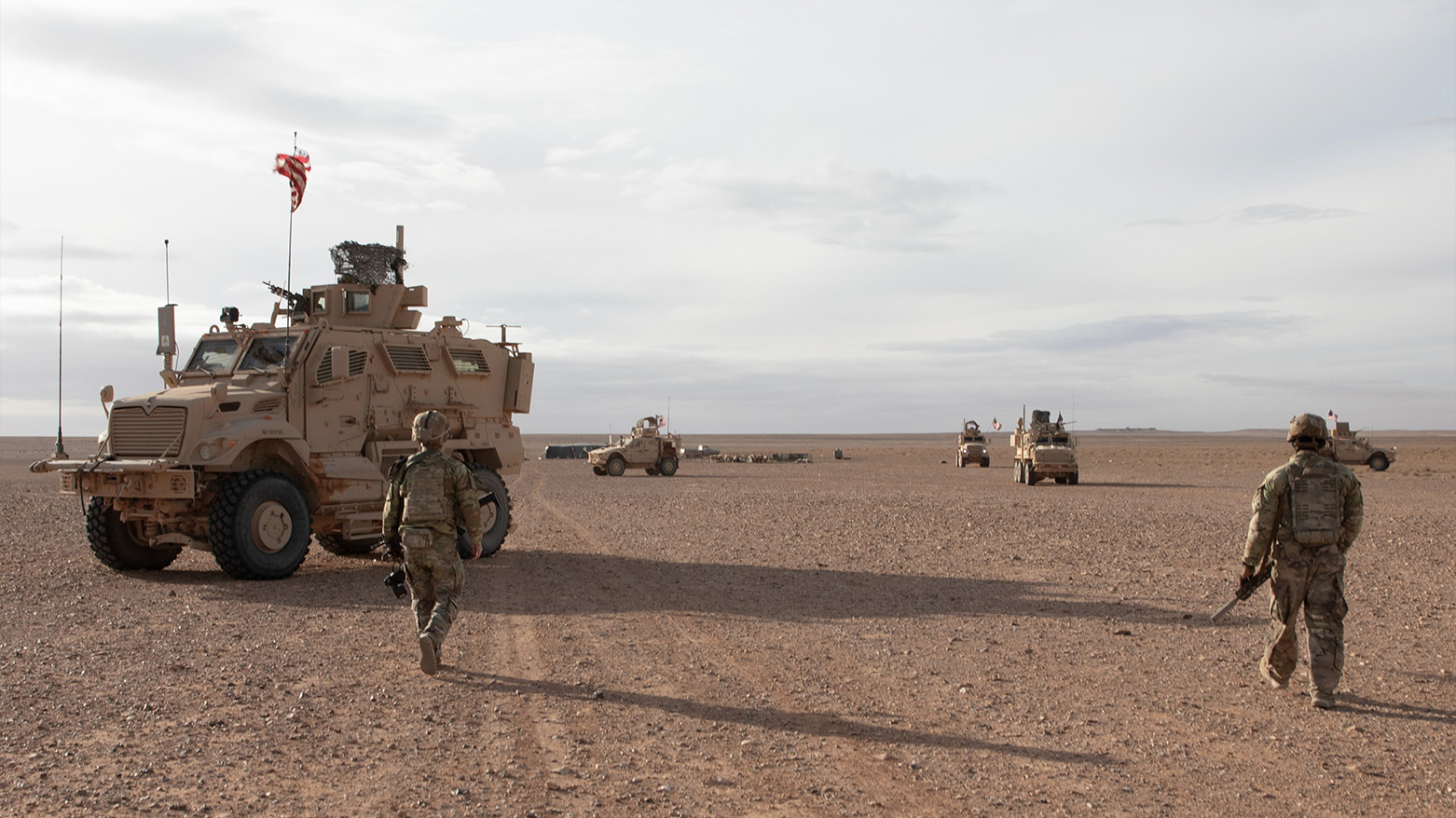Syrian Free Army urges continued US military presence amid regional power shifts
Anteri told Newsweek that the SFA has previously allied with Ankara but also perceives the SDF as a possible partner in pursuing unity in war-ravaged Syria.

Jan. 4, 2025
ERBIL (Kurdistan24) - According to a recent article published in Newsweek, the leader of a US-backed Syrian militia has expressed strong support for maintaining American military presence in Syria, referring to concerns over potential Islamic State (ISIS) resurgence and uncertainties surrounding the country's new Islamist leadership.
The head of the Syrian Free Army (SFA) Colonel Salem Turki al-Anteri highlighted the significant role of US troops in upholding regional stability, in particular in the al-Tanf garrison area where his forces operate.
"The Syrian Free Army values its partnership with the United States and the Coalition in the fight against ISIS," Anteri told Newsweek, emphasizing that American support has been "crucial in weakening ISIS and helping stabilize parts of Syria."
"We believe that having U.S. troops in the Al-Tanf area is still important to prevent ISIS and other extremist groups from coming back," he added. "The SFA is committed to fighting extremism and working toward a Syria that is free, safe, and stable for all Syrians."
Anteri recognized the situation in the country was complicated but emphasized that U.S. military presence continued to serve as an "extremely important" deterrent to ISIS resurgence.
The plea comes at a crucial moment.
As the Newsweek report highlighted, the decisions made by the second Trump administration could have immense implications for the balance of power surrounding Syria as local, regional and international stakeholders vie for influence in the country.
President-elect Trump promised to "stop wars" after winning a second term of presidency in November 2024, indicating a desire to oversee a more peaceful tenure than his predecessor, President Joe Biden.
As President-elect Donald Trump prepares to take office, openly asserted that the U.S. "should have nothing to do" with the Syrian conflict in early December, the SFA and SDF, the top two US-backed forces on the ground, face tough challenges over how to handle HTS.
The US forces are strategically positioned alongside the Kurdish-led Syrian Democratic Forces (SDF) in the northeast and at the southwestern desert garrison of al-Tanf.
The situation in Syria has grown progressively complicated after the recent collapse of the Assad regime to Hayat Tahrir al-Sham (HTS), a former Al-Qaeda affiliate, after an 11-day rebel offensive.
While the SFA has extended its control over a larger territory during this period, including seizing the historic city of Palmyra, it now encounters the challenge of navigating relationships with HTS, which the United States still designates as a terrorist organization.
Anteri made his group's position clear about HTS, stating that the SFA "is separate from Hayat Tahrir al-Sham and has always had different goals and values."
He conveyed openness to working with any political group dedicated to peace and stability, provided they align with values of freedom, human rights, and the rule of law.
The other main U.S. partner in Syria, the SDF, has expressed even greater doubts about HTS, its jihadi background as well as its alliance with the Syrian National Army (SNA), a Turkish-backed rebel coalition, which views the SDF as a branch of the insurgent Kurdistan Workers' Party (PKK).
Anteri told Newsweek that the SFA has previously allied with Ankara but also perceives the SDF as a possible partner in pursuing unity in war-ravaged Syria.
The SFA has also increased its humanitarian efforts, particularly in the Rukban refugee camp near the Jordan-Syria border.
"Through our sustained efforts, many individuals are finally able to return to their homes," Anteri noted, emphasizing his organization's commitment to civilian welfare alongside its military operations.
As regional powers vie for influence in post-Assad Syria, the future of US military involvement remains uncertain.
Trump's upcoming decisions regarding troop presence could significantly impact the balance of power in the region, affecting not only US-backed forces like the SFA and SDF but also the broader strategic interests of regional actors including Turkey, Israel, Russia, and Iran.